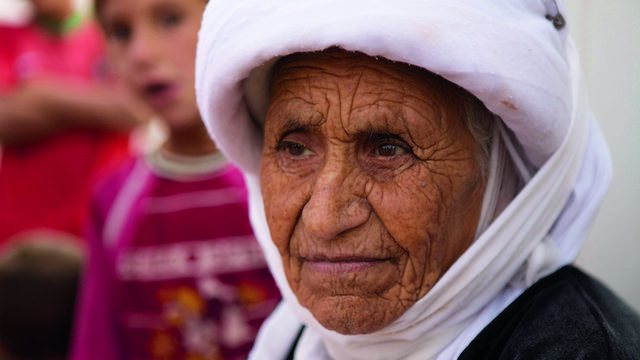It’s not always safe to do what you believe to be right.
Voicing your deepest convictions and living your highest truths may challenge the culture around you. Freedom of conscience is vital to the exercise of moral agency, especially in the face of opposition. We forge our identities by taking a stand on what is right and wrong.
This birthright belongs to us all. Conscience knows no gender.

In countries around the world, acts of conscience, even when they harm no one, provoke acts of punishment. Friction arises when minorities exert their presence in public life. Religious persecution hurts everyone, but women and girls seem particularly affected. In many cultures and legal systems, they are less likely to receive protections. Limiting religious expression disempowers women from a broad range of faiths.
Malala Yousafzai is a young Muslim advocate for female and child education. She received threats for her efforts and in 2012 was shot on a school bus in Pakistan. Having survived, Malala won the Nobel Peace Prize. She believes she can be true to her religion while also promoting women’s rights.[1]
Leaders of the Baha’i faith in Iran, Mahvash Sabet and Fariba Kamalabadi, were arrested in 2008 and sentenced to 20 years of prison for practicing their religion. Accused of “propaganda against the system,” these middle-age mothers languish under harsh conditions. According to a released fellow prisoner, they “feel no hatred in their hearts.”[2]
Ma Huichao, a Christian woman in China, was recently sentenced to three years in jail for having a Bible study class in her home.[3]
Two Muslim sisters, Zulhumor Hamdamova and Mehrinisso Hamdamova, were arrested in Uzbekistan in 2009 for holding religious meetings. Police raided their home, and they are now serving long-term prison sentences in a labor camp where their health is deteriorating.[4]
Nadia Murad is a Yazidi from northern Iraq. In 2014 her village was attacked by terrorists of the Islamic State. She and thousands of other women were raped, forced into marriages, held in slavery and coerced to convert. She escaped and is now working with human rights lawyer Amal Clooney to provide justice for her people. Together, these two women testify before international courts, visit refugee camps and voice their cause to global media.[5]
Freedom of religion or belief is one of the most important women’s rights. Without it, say scholars Brian Grim and Jo-Ann Lyon, “minority groups, including women, will not be at the table and their vital, productive and creative voices will not be heard.” The result is inequality and repression. Grim participated in a recent study that shows “clear linkages between religious freedom, economic stability and women’s empowerment.”[6]
All rights cooperate to promote human dignity. Kristina Arriaga and John Ruskay, both experts in this field, believe religious freedom helps fulfill women’s potential. “Human rights supporters, particularly advocates for the rights of women, can advance their cause when they join with supporters of religious liberty.”[7]
The best kind of religious freedom enables women to determine their own beliefs, to speak out when they see shortfalls in the practice of their faith traditions, to choose a different religion and to participate in society. Each country has a different track record on women’s rights. But where religious freedom is honored, women have more recourse to the law and receive better educational opportunities.[8] This allows them to take leading roles in the improvement of their communities.
Stability relies on the wellbeing of women. Foreign policy scholar Valerie Hudson asserts “there is a strong and highly significant link between state security and women’s security. In fact, the very best predictor of a state’s peacefulness is not its level of wealth, its level of democracy, or its ethno-religious identity; the best predictor of a state’s peacefulness is how well its women are treated.”[9]
A world where women are empowered to follow their conscience is a world of greater peace and possibility.
[1] See biography of Malala Yousafzai, www.nobelprize.org, and “Malala Yousafzai: ‘I’m a Feminist and a Muslim,’” Channel 4 News, Dec. 15, 2015, www.channel4news.com.
[2] Roxana Saberi, “In Iran, Shackling the Baha’i Torchbearers,” Washington Post, Aug. 28, 2010; “Seven Baha'i Leaders Given Harsh Prison Sentence,” amnestyusa.org.
[3] Stoyan Zaimov, “Chinese Christian Woman Sentenced to 3 Years in Prison for Holding Bible Study,” The Christian Post, Jan. 2, 2017.
[4] Mushfig Bayram, “Uzbekistan: More Jailings, Long-Term Prisoners' Sentences Increased,” Forum 18 News Service, Nov. 18, 2016.
[5] Robert Guest, “Two Women, One Cause,” The Economist 1843, February/March 2017.
[6] Brian Grim and Jo-Ann Lyon, “Religion holds women back. Or does it?” World Economic Forum, Nov. 17, 2015; see also Brian J. Grim, Greg Clark and Robert Edward Snyder, “Is Religious Freedom Good for Business?: A Conceptual and Empirical Analysis,” Interdisciplinary Journal of Research on Religion, vol. 10 (2014).
[7] Kristina Arriaga and John Ruskay, “Empower Women by Standing for Religious Freedom,” Religion News Service, Dec. 9, 2016.
[8] Brian J. Grim and Roger Finke, The Price of Freedom Denied (2011), 206.
[9] Valerie M. Hudson, “What Sex Means for World Peace,” Foreign Policy, Apr. 24, 2012.